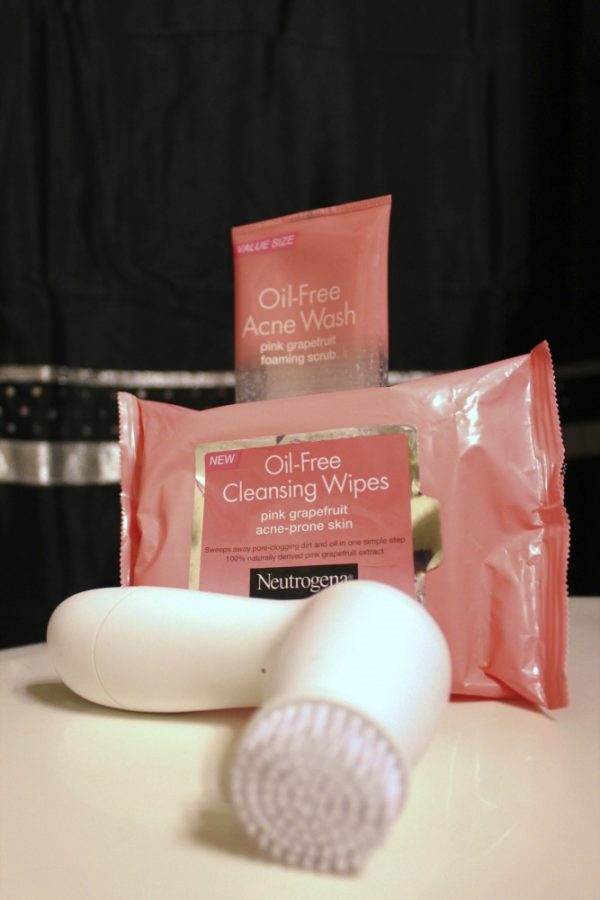Whether we notice it or not, we dry out our faces in the sun, clog our pores with makeup and expose our skin to dirt on an everyday basis.
But these issues can be avoided if we take a few minutes each day to take care of our skin. We are all accustomed to brushing our teeth, exercising and eating, but skin care counts toward our health, too. Bradley McCurry, a senior-level skin therapist at ULTA Beauty, explains how to combat stubborn acne, scarring, dry skin, dark circles and other blemishes with some helpful beauty tips.
Exfoliation mechanics
Exfoliation is one of the key ingredients to healthy skin. McCurry recommends doing this at least three times a week to really make a difference. Adding an exfoliation process as part of a regular regimen allows your skin to “retain moisture a lot easier,” especially in Arizona’s climate. It also helps even out skin tone, scarring, fine lines and wrinkles.
Though everyday exfoliation is acceptable, it is also important not to over-exfoliate. If someone is acne-prone they “will start breaking out,” McCurry said. “If you over compromise that barrier of your skin, it fights back.”
What people may not realize is that exfoliation can be done on any part of the body. By exfoliating skin that is coarse or thick, such as elbows, it helps unclog pores and soften the skin, he said.
Aside from massaging the face while washing, McCurry said mechanical face brushes are “amazing” and “good for exfoliation” because they clean skin “seven times more effectively than if you use your hands.”
“Realistically you should really be cleansing your skin no more than twice a day, morning and night.”
While products with benzoyl peroxide also work quickly for acne, they dry out the skin, McCurry said. For acne-prone skin, salicylic acid products are effective. It is a rule of thumb to avoid products with alcohol.
Facial duo: Moisturizer and sunscreen
With spring weather rolling in and summer on the way, moisturizing is crucial, but “you don’t need to necessarily start slathering on moisturizer.”
“Listen to what your body tells you. It will never lead you wrong,” McCurry said.
If you don’t have SPF on your skin while you’re outside, within five minutes you will get sun damage, McCurry said. Moisturizers containing SPF 30 are ideal because anything less needs to be reapplied depending on the amount of sun exposure.
“One of the ingredients you want to look for in a sunscreen is mica,” he said. “When the sun shines on the skin, it will naturally reflect the light away from it.”
It is also a good idea to use a toner after cleansing because it “allows the moisturizer to be more readily absorbed into the skin.”
Makeup: À la Tarte
“Don’t go to bed with your makeup on,” McCurry said. “If you wear your makeup to bed every day for a week, you age your skin a month.”
McCurry said Smashbox makeup is one of the best choices for the average person’s skin. The Tarte brand is also good because it uses Amazonian clay, which adjusts to “just about any type of skin.” It allows for light or heavy coverage and is offered in all-natural cheek or lip stains.
Using a foundation primer and eye shadow primer is necessary in an arid environment, McCurry said. It keeps the makeup from fading and creasing.
People should also pay attention to the little things such as checking for expired makeup and reading labels. Brushes should also be cleaned out regularly. Some makeup cannot be left in the bathroom because the heat from the shower will affect it, McCurry said.
Dieting for the skin: Go green
“The most important thing you can do is drink 8 glasses of water a day,” McCurry said. “Hydration, hydration, hydration.”
Eating green vegetables or organic food from Trader Joe’s and Whole Foods is healthy for the skin, he said. People aren’t always aware that salts, sodas, artificial foods and processed foods have to come out somewhere, “and it’s going to come out on your skin.”









